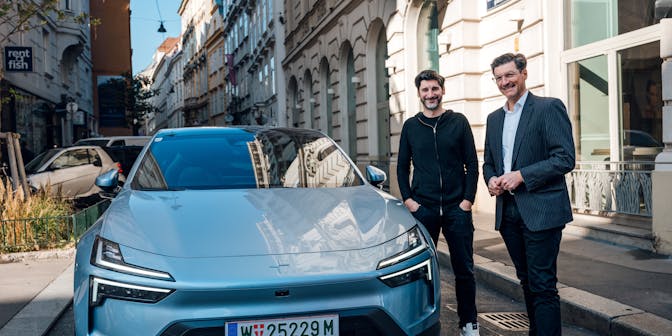Do electric cars depreciate?
Put simply, depreciation is the difference between the value of a car when you buy and sell it. Different cars depreciate at different rates, with the biggest loss of value felt in the first year and the subsequent two years. The value of a car could fall by as much as a third the instant you drive it off the forecourt. It may sound scary, but here we take a closer look at car depreciation and how you can avoid it.
How much do cars depreciate per year in the UK?
Typically, how much a car depreciates per year is between 15% and 35% in the first year. The AA states the average new car loses around 60% of its value after three years, based on a mileage of 10,000 miles per annum.
Another term closely linked to depreciation is residual value, this means the value of the vehicle after depreciation, so with the AA figure of 60% as the average rate of depreciation on a new car, the residual value is 40%.
So, let's take the approximate price of a new, popular car in the UK in 2024, which is £30,000. If this vehicle holds to the AA figure of losing 60% of its value after 3 years and 30,000 miles then at the end of the third year the vehicle is now valued at £12,000. A huge £18,000 has been lost in depreciation, and £12,000 is the car's residual value.
This makes depreciation the single biggest cost of buying/running a new car. And the numbers only get bigger when you buy a more expensive car.
There are different factors which come into play, including the desirability of the model and things like condition, but such high depreciation is something that most of us want to avoid.
Thankfully, electric vehicles (EVs) can be a neat solution to the difficulties of depreciation.

Depreciation of electric vehicles – Do electric cars depreciate faster?
Initially, residual values on EVs were poor, which had people wondering ‘Do electric cars depreciate faster?’
This is because there wasn’t a big market for people wanting to buy them, especially used electric vehicles.
Now, however, the market has exploded and with a large demand for used electric cars, they are retaining their value a lot better.
So, which car holds its value best in the UK?
Premium brands like Mercedes-Benz, BMW and Tesla boast astonishing residual values, helped by increasing ultra-low emission zones and rising congestion charges and fuel prices.
Drive Electric calculate the Mercedes-Benz EQC holds around 65% of its value after three years or 36,000 miles, while the Tesla Model S Performance Ludicrous holds 60%. Top of the pile when it comes to electric car depreciation is the Porsche Taycan, which is expected to hold on to a massive 77% of its value. So, a premium Mercedes electric car or similar badged EV can be a good way of minimising the impact of depreciation.
Example electric car residual values after 3 years or 36,000 miles
Porsche Taycan
77.47%
Mercedes-Benz EQC
65.38%
Tesla Model S Performance Ludicrous
59.82%
Tesla Model X Long Range
58.81%
Tesla Model 3 Long Range
57.91%
EV depreciation compared to petrol, diesel and hybrid vehicles
The depreciation of electric vehicles stacks up well compared to petrol cars, which usually depreciate the fastest. Diesel vehicles have also seen higher depreciation in recent years, in part due to the controversy surrounding the diesel emissions scandal.
Many people are now thinking ‘will petrol cars lose value’, and they’re right to think it. This is because car buyers are also becoming increasingly aware of the time limit internal combustion cars now have, with the UK set to ban the sale of new petrol and diesel cars in 2035.
What’s more, buyers are increasingly aware of the environmental benefits of EVs compared to petrol and diesel cars. EVs are also much better for the environment than hybrids for people who cover large distances daily, and therefore go well beyond a hybrid car’s electric range.
Hybrids are showing strong resale values at present though, while they’re much healthier for urban environments when running solely on renewable energy. The availability of energy tariffs which offer renewable electricity for cheap off-peak prices, meanwhile, is also helping EV depreciation. The strong residual values we’re now seeing for electric cars compared to petrol and diesel models is great news for leasing, helping to bring down monthly payments.
Depreciation and leasing
When you take out a contract hire lease on a car, including an EV, the amount you pay is based on the projected rate of depreciation. In the case of electric cars, as well as enjoying lower monthly payments, Electric car leasing is also a safe way to protect yourself against new technology in the field. From key issues like battery performance and range to the increasingly wide choice between models, EVs are almost certain to be more advanced at the end of a two, three or four-year lease.
Leasing an electric car means you’re not at risk of unforeseen depreciation like you would be if you bought the car outright. At the end of your contract, you simply hand the car back and take out a new lease on a brand-new EV which has the latest tech.
Risk-free, cheaper to run and better for the environment – get in touch with us today and we can help you pick out a great new EV while answering any of the questions you may have about going electric.
Our electric car lease special offers
Omoda E5 155kW Knight 61kWh 5dr Auto
- £1,768.58 Initial rental (ex. VAT)
- £2,122.30 Initial rental (inc. VAT)
- 48 Month term
- 5000 Annual mileage
- Subject to status and conditions + arrangement fee
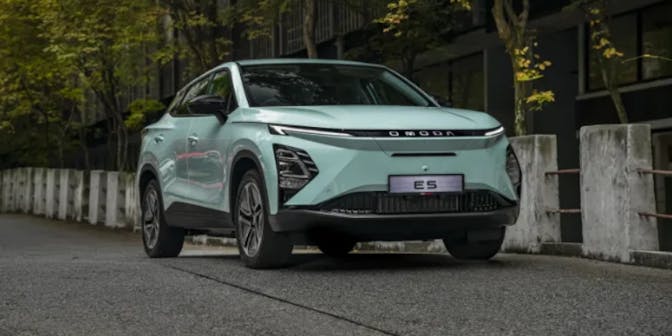
Tesla Model 3 RWD 4dr Auto
- £3,118.90 Initial rental (ex. VAT)
- £3,742.68 Initial rental (inc. VAT)
- 48 Month term
- 5000 Annual mileage
- Subject to status and conditions + arrangement fee
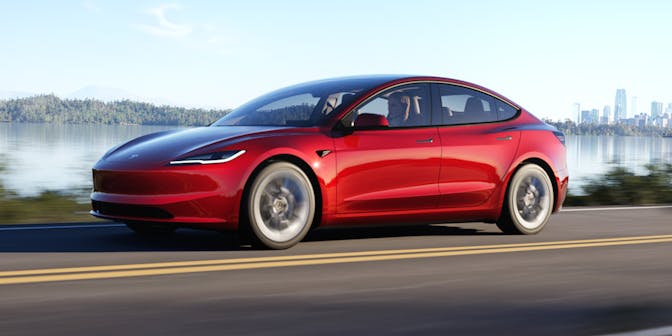
Tesla Model Y Standard RWD 5dr Auto
- £3,436.15 Initial rental (ex. VAT)
- £4,123.38 Initial rental (inc. VAT)
- 48 Month term
- 5000 Annual mileage
- Subject to status and conditions + arrangement fee
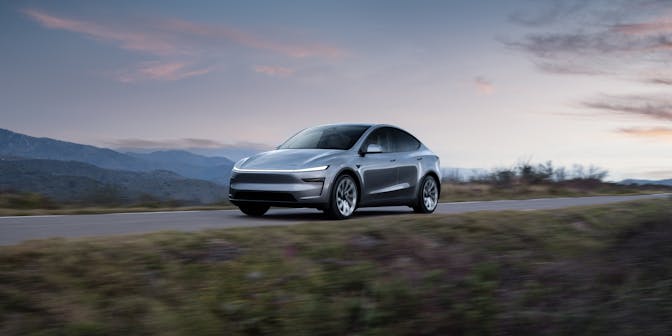
More EV guides
Why 2025 is a turning point for SME fleets
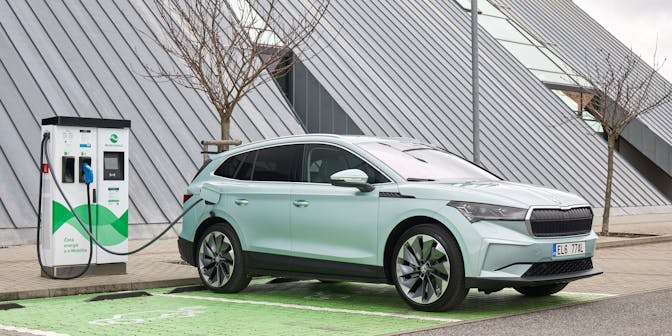
6 surprising things you didn’t know about electric vans
Understanding Vehicle Excise Duty (VED) or "Road Tax" for EVs
